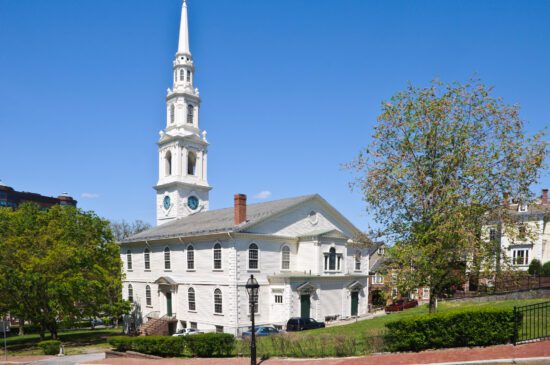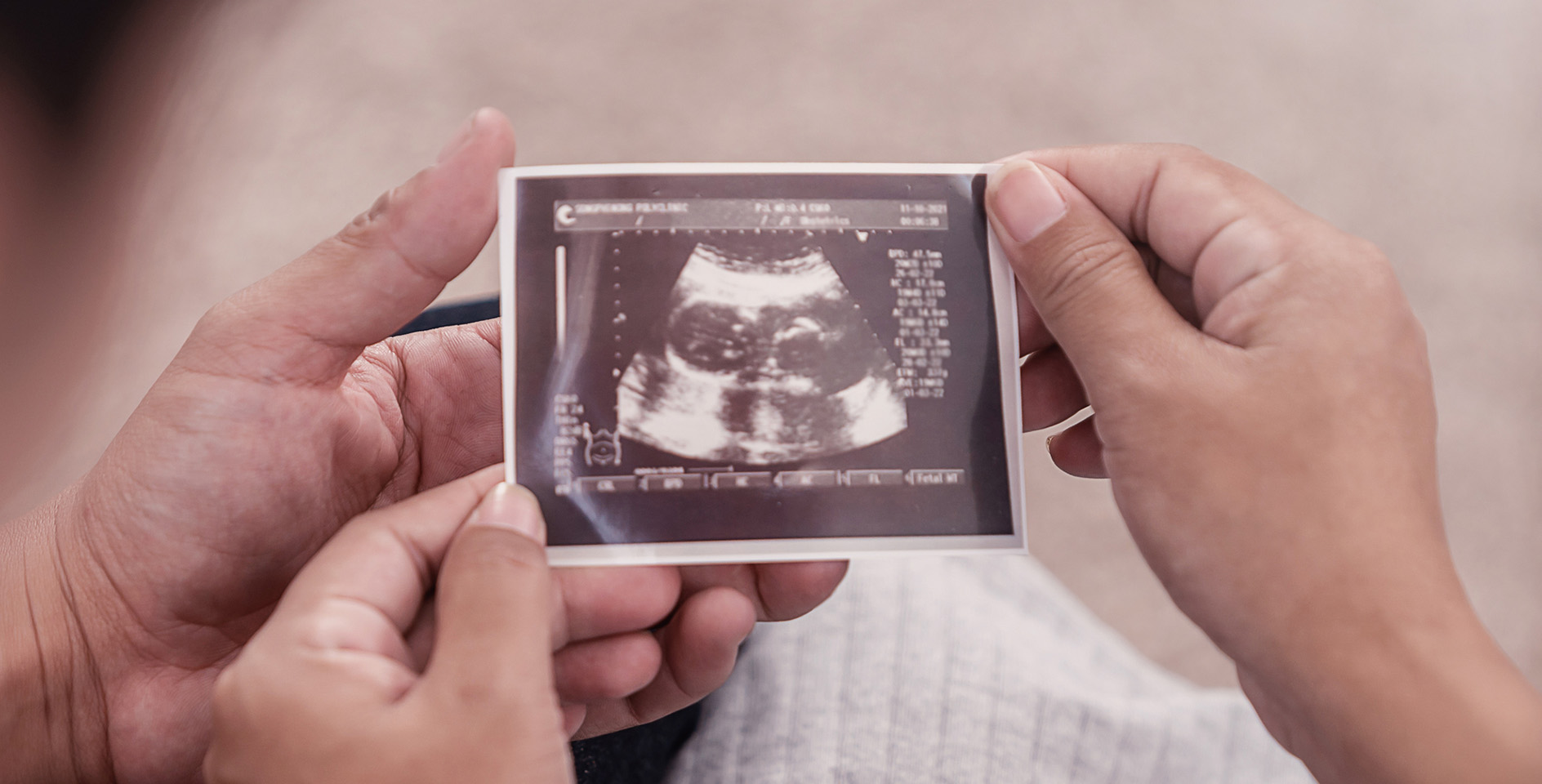The theological doctrine of the imago Dei is grounded in the truth that every human being possesses an inherent dignity, value, and worth by virtue of being human and ought to be respected. It is the acknowledgment that human life at every stage is sacred. This sacredness of human life is not based on one’s attributes, utility, function, or their ability to contribute to society, but rather the idea that humankind, male and female, is created in the imago Dei, the image of God (Gen. 1:26–27; 2:7). Human beings, created in the image of God, possess a unique and special relationship with him as Creator that sets them apart from the rest of creation (Matt. 6:26; 10:29–31; 12:11–12).
Southern Baptists acknowledge that Scripture speaks to the uniqueness of humankind being created in the image of God. The Baptist Faith and Message 2000 states, “Man is the special creation of God, made in His own image. He created them male and female as the crowning work of His creation.”1Baptist Faith & Message 2000 – The Baptist Faith and Message, https://bfm.sbc.net/, accessed May 10, 2024, https://bfm.sbc.net/bfm2000/. This affirmation of the image of God in all humanity informs how Southern Baptists view evangelism and missions, social engagement, religious liberty, and the family.2See the Baptist Faith & Message 2000 for the Southern Baptist Convention’s position on “Evangelism and Missions,” “The Christian and Social Order,” “Religious Liberty,” and “the Family.” Hence, human dignity, in the imago Dei becomes a reference point by which Southern Baptists, governed by Scripture, consider ethical and public policy positions.
The fact that humankind is created in the imago Dei means that God is the one who endows humans with this fundamental dignity, and it is humanity’s responsibility to affirm that dignity in all people. Therefore, human dignity and human life is not independent from God’s own character, attributes, activity, and will. The way in which people interact with others speaks not only to human relationships, but with God as well. Because humankind is made in God’s image, all people model attributes and capacities that reflect God in particular ways, thereby communicating an inherent interconnectedness between creation and Creator that ought to be evidenced in how humanity engages with the created world according to God’s will.3John F. Kilner, “Dignity and Destiny: Humanity in the Image of God” (Grand Rapids, MI: Eerdmans, 2015), 134. Unfortunately, when people do not affirm the inherent dignity of others and go further by denying that dignity, people are capable of doing atrocious things to one another. History has testified to that reality.
Human dignity is the claim that because God created people in his image, all people possess dignity, value. and worth. It is dictated by God, and is not granted by philosophical systems, international agreements, court cases, or governing documents. This claim has theological, sociological, and political implications because it requires Christians to advocate for all people, affirming their dignity and seeking to maximize their flourishing based on God’s will for creation and his image bearers. Therefore, human dignity impacts all aspects of human life and provides a foundation as to how Christians should engage in the various issues of personal and public importance.
Human dignity and the cultural mandate
Human dignity does not just speak to one’s inherent value as a human being. It also speaks to how God gave humankind a unique role within creation. The cultural mandate (Gen. 1:28) reveals that part of being created in the image of God is to reflect God’s attributes in the created order for the glory of God and the flourishing of creation. Humanity is called to serve God as his vice regents, ruling, shaping, stewarding, and caring for the world God created. The creation mandate and human dignity are interconnected in that when God created humanity in his image, he gave this responsibility to them alone. In other words, because humans are unique compared to the rest of creation, then all human activity should reflect that uniqueness as his vice regents and representatives in the world. Since all human beings are created in the image of God, then every person has a part in shaping the world around them. Although the means and scope of that work may differ among individuals based on cognitive and physical abilities as well as stage of life, every human being, based on their intrinsic value, ought to have every opportunity to exercise their agency to take responsibility for the world around them.
A biblical view of human dignity, established in the imago Dei, affirms that every person can and naturally participates in the creation mandate as part of their God-ordained purpose as human beings. Southern Baptists affirm that a biblical view of human dignity facilitates a wholistic view of human flourishing from conception to natural death as every person has inherent dignity and ought to find the abundant life that Christ provides (John 10:10), fully participating in the life of the world for the glory of God (Col. 3:17; 23), human flourishing, and the common good (Jer. 29:7) as they are able to do so. Just as one’s utility, abilities, or attributes do not determine one’s intrinsic dignity, they do not determine one’s ability to fulfill their God-given purpose as human beings. While contributions to the cultural mandate may differ in degree and outcomes, every person has the opportunity to participate in it.
Human dignity and the “three greats”
When God created humankind in his image, he created humanity too as social beings living in community (Gen. 2:18). Humanity best fulfills its role in the imago Dei when people live a life of worship toward God and in right relationship with one another. The relationship between human dignity and this shared life with others is reflected in “three greats:” The Great Commandment, the Great Commission, and the Great Requirement.
The first “great,” the Great Commandment (Deut. 6:5; Lev. 19:18; Matt. 22:37–40; Mark 12:29–31; Luke 10:27) outlines the qualities of properly ordered loves that affect humankind’s relationship with God and others. The command to love God, the first part of the Great Commandment, is the acknowledgment that because God created humanity in his image, he is due our worship. Worship is aligning one’s deepest and fundamental loves and affections toward God and living a life that pursues his glory in all endeavors. Human dignity informs the first relational priority—humanity’s relationship with God—by acknowledging that humanity’s dignity comes from God himself, and, in return, humankind best embodies the truth that they are made in the imago Dei in their worship of God. The creature (who is an image bearer) gives to their Creator the honor and glory that he is due.
The second command in the Great Commandment is the command to love one’s neighbor as oneself. The command to neighbor love is grounded in the reality that every person is created in the image of God and as such is due the love and respect that comes from being a fellow image bearer. Luke 10:25–37 further outlines what neighbor love looks like by clarifying who is one’s neighbor. Because of our human sin and the brokenness of the fall, it is common for us to decide that our neighbors must be like us in some unjust manner. Societal vices such as racism, ethnocentrism, and sexism, among other manifestations of partiality, (James 2:1–9) are all fundamentally attacks on human dignity where groups not only determine who one’s neighbor is, but also who is worthy of life. In the parable of the Good Samaritan in Luke 10, Jesus makes clear that human groups do not have the authority to dictate who one’s neighbor is. Instead, the triune God who created every person in his image does. Therefore, neighbor love is the affirmation of the human dignity of every person.
The second “great” is a byproduct of obeying the Great Commandment. Sin distorted the image of God within humankind by creating a “moral vertigo” where the “effects of sin so upended our perspective on the shape and nature of both reality and morality … ”4Mark Liederbach and Evan Lenow, “Ethics as Worship: The Pursuit of Moral Discipleship” (Phillipsburg, NJ: P&R Publishing, 2021), 59. This moral vertigo, created by the fall (Gen. 3:1–10), alters how people relate to God and subsequently, how people view and treat one another. Because sin has estranged humanity from a right relationship with God and one another, Jesus gave his followers the Great Commission (Matt. 28:18–20) as the mission for his people. This matters in the area of human dignity because if every human is created in the imago Dei, and sin has distorted this image through this moral vertigo, then the Great Commission is the mission by which every person can experience the fullness of human purpose in the imago Dei as established by God through Christ.
The third “great” recognizes that the Great Commission is more than a verbal proclamation of the gospel. It is the practical declaration of the gospel through action (individually and collectively) by addressing the lived barriers of evangelism, typically those that are affronts to human dignity. The Great Requirement (Micah 6:8) informs the posture of how the people of God should live out the Great Commandment and the Great Commission. God’s will for his people is to affirm the fullness of human dignity by “acting justly,” “loving faithfulness,” and “walking humbly with our God.” In other words, the Great Requirement says that the call to love God and others ought to inform how one engages the world around them because their dignity is endowed by God, and his people have a responsibility to make sure that dignity is affirmed in all people.
Human dignity and public witness
Core to many of the issues Southern Baptists address in the public square is the affirmation that all persons are created in the image of God. Thus, human dignity is just as much a political issue as it is an anthropological and theological one. It is political in the sense that politics entails how people organize social life in a manner that articulates a vision of the common good. Public policy and governance, therefore, is the means by which this social organization is implemented. The importance of the Christian worldview, ethics, and anthropology cannot be understated because worldview, ethics, and anthropology impact policy and legislation. As such, a Christian view of human dignity ought to be verbalized in the larger public discourse.
The BFM2000’s article on “The Christian and the Social Order” connects our obligation to God and his moral order to our public witness and social activism. Central to understanding why we would repudiate the evils of “greed, selfishness, and vice” as well as why we would care for “the orphaned, the need, the abused … ” is our understanding of human dignity. As the BFM20000 states:
“All Christians are under obligation to seek to make the will of Christ supreme in our own lives and in human society. Means and methods used for the improvement of society and the establishment of righteousness among men can be truly and permanently helpful only when they are rooted in the regeneration of the individual by the saving grace of God in Jesus Christ. In the spirit of Christ, Christians should oppose racism, every form of greed, selfishness, and vice, and all forms of sexual immorality, including adultery, homosexuality, and pornography. We should work to provide for the orphaned, the needy, the abused, the aged, the helpless, and the sick. We should speak on behalf of the unborn and contend for the sanctity of all human life from conception to natural death. Every Christian should seek to bring industry, government, and society as a whole under the sway of the principles of righteousness, truth, and brotherly love. In order to promote these ends Christians should be ready to work with all men of good will in any good cause, always being careful to act in the spirit of love without compromising their loyalty to Christ and His truth.”
One recent example where Southern Baptists have made public statements is on the topic of immigration. In the 2023 resolution “On Wisely Engaging Immigration,” the Southern Baptist Convention affirmed the inherent dignity of the refugee and immigrant while recognizing the need for order and security of the nation.5“On Wisely Engaging Immigration – SBC.Net,” https://www.sbc.net/, accessed May 16, 2024, https://www.sbc.net/resource-library/resolutions/on-wisely-engaging-immigration/. A wise view of immigration argues that the two should not be in opposition to one another, but policies should work in cooperation for the good of the immigrant/refugee and the citizen/resident because all parties involved are created in the image of God. By acknowledging the inherent dignity of all people regardless of ethnicity, national origin, background, language, or circumstances, engaging immigration becomes an issue of how to affirm that dignity and maximizing the agency of all parties involved.
When it comes to creating and implementing policy, there will be differences of opinion. However, for Christians, the inherent dignity of each individual is nonnegotiable. A key role of Christian public witness is to remind the larger society of this reality. Additionally, Christian public witness must hold the larger society and its governing bodies accountable when the concepts of human dignity are violated in policies and practices. This responsibility derives from the Christian call to live out the “three greats” mentioned earlier.
Human dignity is the idea that all human life is sacred. That sacredness is not something that humans endow upon others, but which flows from each person’s status as an image bearer of the triune God. Therefore, all human beings, regardless of utility or attributes have an inherent dignity that must be affirmed. This affirmation ought to facilitate human agency as every person is called to the task to make something of the world around them as outlined in the cultural mandate. The Great Commandment, Commission, and Requirement not only affirm human dignity but inform how Christians are to live in light of how God views human life. Christians are given the mission to proclaim God’s will for humankind to all people groups through the gospel. Lastly, the Christian public witness, as part of that mission, must look for ways to advocate for policies and practices that affirm God’s standard of human dignity and prophetically confront those that violate it.










